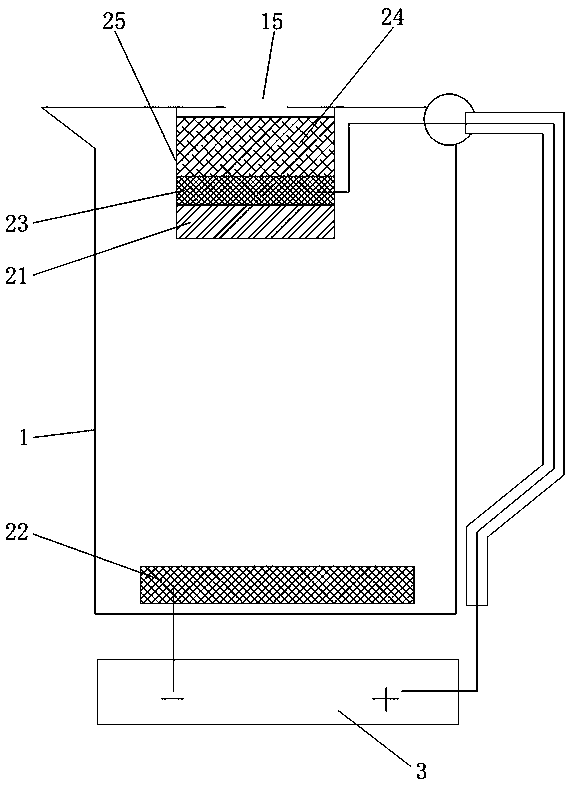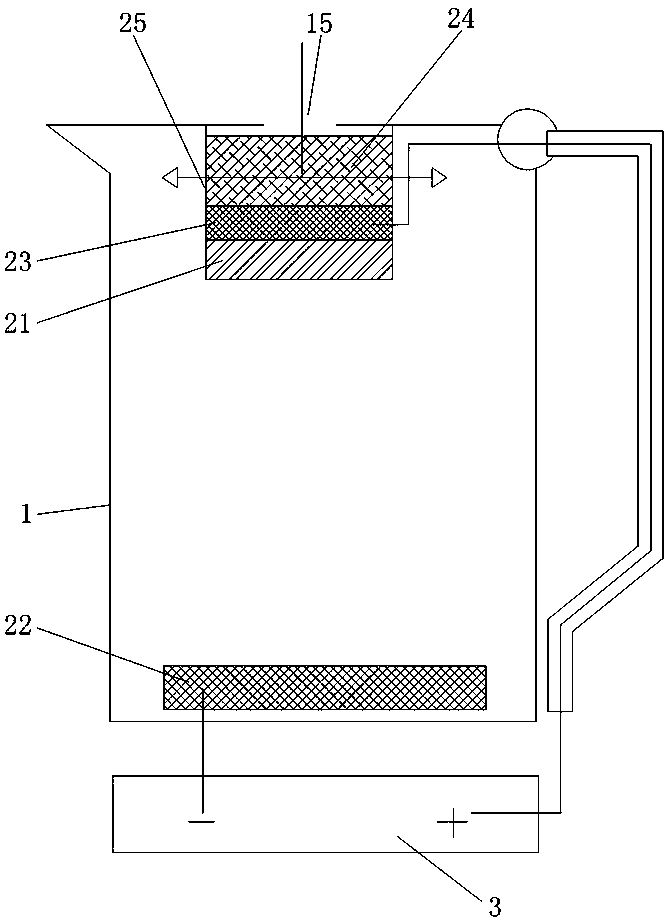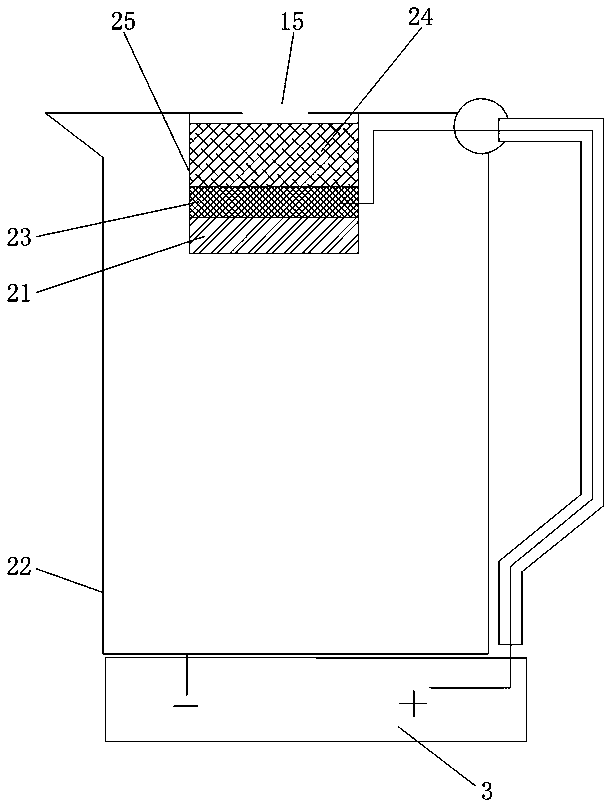clean kettle
A technology for purifying kettles and kettles, applied in water treatment sites, water/sewage treatment, water/sewage treatment equipment, etc., can solve the problems of bacteria and microorganisms exceeding the standard, affecting water quality, odor and odor, etc., to inhibit the generation of ozone and ensure drinking water. Safety and effect of reducing the risk of toxic by-products
- Summary
- Abstract
- Description
- Claims
- Application Information
AI Technical Summary
Problems solved by technology
Method used
Image
Examples
Embodiment 1
[0049] The clean kettle of the present embodiment, see figure 1 , including at least one pair of negative electrode 22 and positive electrode 23, electrolysis power supply 3 and kettle 1 for supplying power to the negative and positive electrodes, a water-permeable diaphragm 21 is arranged between the paired negative electrode 22 and positive electrode 23, and the water-permeable diaphragm 21 is a non-conductive The water-permeable diaphragm 21 has water-permeable micropores with uniform pore diameters. The water-permeable micropores with uniform pore size are roughly uniform in size and shape. For example, all the holes in a membrane have the same shape, such as oval holes, triangular holes, and so on. The pore sizes in a membrane are all the same size pores, and so on.
[0050] The anode electrode 23 and the water-permeable membrane 21 are packaged 25 by an insulating frame to form an integral unit. The integral unit is fixed in the pot lid of the kettle 1, and the lower p...
Embodiment 2
[0074] The kettle of this embodiment is an improvement on the basis of Embodiment 1, and the difference from Embodiment 1 is:
[0075] In this embodiment, the kettle body is manually filled with tap water. Still taking the city supply tap water in Dalian, China as an example, the electrolysis power supply 3 adopts an alternating pulse power supply whose forward voltage level is greater than the reverse voltage level, and the average voltage is 15V. The water-permeable diaphragm 21 adopts a microfiltration membrane, and the distance δ between the microfiltration membrane and the anode electrode 23 located outside the membrane is 15 millimeters.
Embodiment 3
[0077] The water purification kettle of this embodiment is an improvement on the basis of Embodiment 1. The difference with Embodiment 1 is that in this embodiment, there are several through holes on the positive electrode 23 positioned on the outside of the water-permeable diaphragm 21, and the water-permeable diaphragm 21 using nanofiltration membranes.
[0078] In this embodiment, the municipal tap water in Dalian, China is still taken as an example, and the distance δ between the water-permeable diaphragm 21 and the anode electrode 23 located outside the diaphragm is 0 mm and 10 mm, respectively.
PUM
| Property | Measurement | Unit |
|---|---|---|
| pore size | aaaaa | aaaaa |
Abstract
Description
Claims
Application Information
 Login to View More
Login to View More - R&D
- Intellectual Property
- Life Sciences
- Materials
- Tech Scout
- Unparalleled Data Quality
- Higher Quality Content
- 60% Fewer Hallucinations
Browse by: Latest US Patents, China's latest patents, Technical Efficacy Thesaurus, Application Domain, Technology Topic, Popular Technical Reports.
© 2025 PatSnap. All rights reserved.Legal|Privacy policy|Modern Slavery Act Transparency Statement|Sitemap|About US| Contact US: help@patsnap.com



